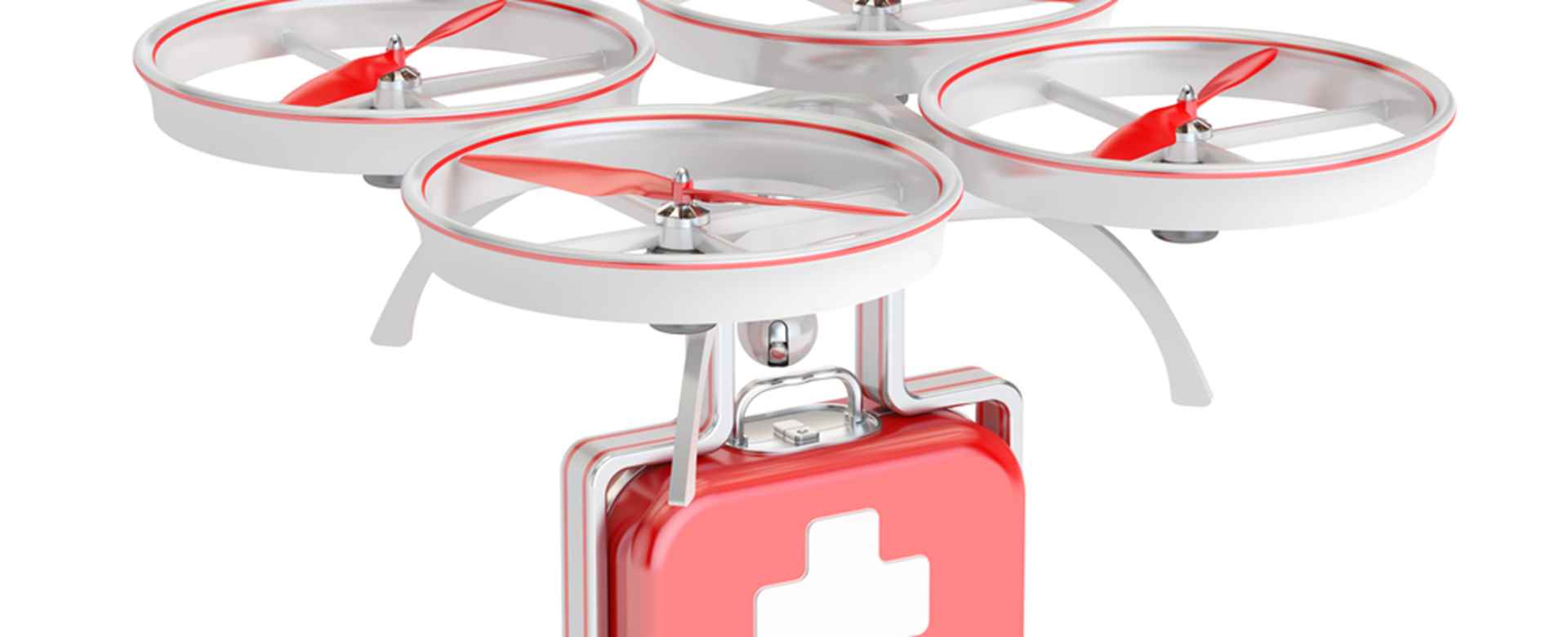Areas of the U.S. continue to face shortages in physicians and other medical personnel. Individuals living in rural areas are hit particularly hard. Members of many rural communities have to travel hours to reach the nearest hospital or clinic, which may be small and under-equipped to handle a particular emergency or the type of care an individual needs. Additionally, members of rural communities may not have their own reliable vehicles or access to public transportation.
The distance from medical facilities, physician shortages and the lack of transportation mean rural communities do not receive the preventative and necessary medical care that more urban or wealthier areas enjoy. With these disadvantages in mind, a variety of care providers, organizations and businesses have sought ways to tackle rural medicine through innovative technologies like telemedicine, unique transportation and improved predictive medicine.
Transportation redesigned for rural medicine
Since the early 2000s, various healthcare providers have developed ways of taking preventative care and more specific types of medical expertise to individuals in rural or homeless communities. This often means a van or RV equipped to provide a certain type of care, from dental exams to mammograms. Ford’s Sustainable Urban Mobility with Uncompromised Rural Reach (SUMURR) project in India, undergone through 2013-2014, took the idea of mobile medicine one step further. For the SUMURR project, a Ford Endeavor was equipped:
- To handle difficult terrain
- To bring medical personnel to remote regions
- To transport patients to hospitals
- With wireless internet to connect physicians and medical records with patients
- With voice-to-text technology to improve real-time record keeping
These technological advantages within the vehicle drastically improved the accuracy and speed of communication between patients and caregivers. This could become a model for healthcare providers with communities facing a shortage of medical professionals. Hospitals and networks near a professional shortage area could use a fully equipped vehicle as a means to reach patients in rural areas on a regular basis and provide preventative care. Physicians, dentists, psychiatrists and nurses could offer basic medical exams and screenings, vaccinations, checkups for pregnant women to identify high-risk pregnancies, blood and lab tests, dental cleanings and mental health screenings. The vehicle could also be used on a scheduled basis to transport patients to a nearby medical facility for exams and testing.
Can drones help with rural medical care?
Business are beginning to think outside the box when it comes to distance and transportation issues for rural communities. Zipline is a new company delivering medical supplies by drones in Rwanda. According to the company’s website, more than 2 billion people around the globe lack access to essential medical supplies due to rough terrain and insufficient infrastructure. This includes many people in America. To tackle the transportation problems associated with rural healthcare, the company uses drones to deliver medications, vaccines and blood to remote areas. Healthcare workers can order supplies via text and within minutes, a drone is on its way moving at more than 60 mph.
Could Zipline’s delivery method work in the U.S.? It is possible, but many current Federal Aviation Administration regulations would need to change. Right now, no one can fly a drone outside of the human operator’s line of sight and deliveries are prohibited. Additionally, airspace in the U.S. is far different than in Rwanda.
In an article in Wired magazine, U.S. Secretary of Transportation Anthony Foxx told Wired he understands the urgency people feel about allowing drones to do more and go farther, but he added that America’s air is full of commercial and private flights, and mixing in drones without careful planning could be dangerous. “But we’re not dealing with a complete green field here,” said Foxx. “There are other users of our airspace. The challenge for us is an integration challenge.”
Using predictive medicine to benefit rural populations
Rural and under-privileged populations are disproportionately affected by illnesses such as obesity, diabetes, heart disease and cancer. To reduce the instances of these conditions and lower the risk of dangerous side effects associated with them, patients need more than preventative care. That is why Oklahoma State University launched the Center for Predictive Medicine in August 2016. The university will use a large clinical database and other technological tools to enable healthcare providers to better predict the likelihood of a condition, a disease’s progression, adverse events, and drug interactions or outcomes. For rural patients who are less likely to receive consistent preventative care, predictive medicine can be a beneficial tool to physicians and other care providers trying to reach them.
Additionally, predictive medicine can help physicians determine necessary and appropriate examinations, labs and treatments. This could be especially valuable to independent review organizations like Advanced Medical Reviews (AMR) since the more detailed a patient’s medical history and records, the more confidently an independent Physician Reviewer can determine the outcome of an appeal.
“…The predictive and information tools the Center for Predictive Medicine is developing will revolutionize the way we treat disease and train physicians,” said OSU Center for Health Sciences President Dr. Kayse Shrum. “For all patient populations, but particularly rural and medically underserved regions, this means better healthcare outcomes, more cost-effective medicine and healthier communities.”
Rural communities face a number of disadvantages when it comes to healthcare: physician shortages, lengthy distances to medical facilities and a lack of transportation are only three. However, many individuals are trying to fix these problems and more through telemedicine, medical vehicles and predictive medicine.
Sign up for Updates:
Privacy Details
By submitting this form, you are consenting to receive marketing emails from: Advanced Medical Reviews, LLC. You can revoke your consent to receive emails at any time by using the Unsubscribe link, found at the bottom of every email.
